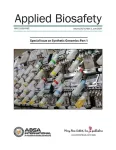(Press-News.org) June 26, 2024 (Toronto, Canada) – A new study conducted by the Centre for Addiction and Mental Health (CAMH), Bordeaux University Hospital, France, and the World Health Organization (WHO) has found that individuals with alcohol dependence who undergo rehabilitation or maintain abstinence experience significantly lower risks of developing alcohol-associated cancers. The article, entitled Alcohol rehabilitation and cancer risk: a nationwide hospital cohort study in France was published today in Lancet Public Health. It is the largest of its kind to provide evidence linking reduced or ceased alcohol consumption with a decreased risk of all alcohol-attributable cancers, including liver and throat cancers.
The nationwide retrospective cohort study analyzed data from more than 24 million French people, all adults residing in mainland France who were discharged from hospital between 2018 and 2021. The researchers found that approximately 6.3 percent of men and 1.6 percent of women had alcohol dependence, which was strongly associated with alcohol-related cancers, including hepatocellular carcinoma, as well as oral, pharyngeal, laryngeal, esophageal, and colorectal cancers, in both sexes. However, they also found that that rehabilitation treatment or a history of abstinence was associated with significantly lower risks compared to alcohol dependence without rehabilitation or abstinence. This underscores the effectiveness of treatment strategies in combating cancer risks linked to alcohol dependence.
“The research team was surprised at the size of the treatment intervention effect in this study,” said Dr. Jürgen Rehm, Senior Scientist at the Institute for Mental Health Policy Research at CAMH and study senior author. “We know that alcohol dependence treatment is effective but the fact that alcohol dependence is a recurring chronic disease often makes us forget that even with relapses, periods of abstinence markedly lower the risk of cancer and other chronic diseases."
“From a public health standpoint, our research highlights a troubling neglect of alcohol dependence compared to other health issues in both research and policy priorities,” added article lead author Dr. Michaël Schwarzinger, Department of Prevention, Bordeaux University Hospital. “Consequently, alcohol dependence continues to be a silent, dreadful epidemic in countries like France, especially given that the average annual level of adult alcohol consumption per capita in that country is over twice the global average.”
“We know that the most effective strategy to reduce the overall burden of harms caused by alcohol, including cancer, lies in population-level policies—measures such as increasing alcohol taxes, reducing alcohol availability, and banning or restricting marketing,” said Dr. Carina Ferreira-Borges, Regional Adviser for Alcohol, Illicit drugs, and Prison health at the WHO Regional Office for Europe. “However, this study underscores that health systems’ response is also crucial to lower the risk of alcohol-attributable cancers. By increasing accessibility to interventions for alcohol rehabilitation and abstinence in healthcare settings countries could do more to protect their populations from preventable cancers. Therefore, we call for more investment in rehabilitation and treatment services for alcohol use disorders in France and other countries of the WHO European Region.”
Dr. Leslie Buckley, CAMH's Chief of Addictions, emphasized the importance of these findings:
“In Canada, hospital admissions for alcohol-attributable conditions out-number those for myocardial infarction, and many people face barriers to evidence-based treatment due to stigma and challenges in accessing in-person care. Innovations such as virtual treatment can overcome these challenges by offering flexible and cost-effective solutions. At CAMH, we’re conducting research on fully-virtual day programs which show promise, replicating traditional rehabilitation intensity without the need for physical infrastructure, thereby reducing wait times and making treatment more accessible.
Given the imminent increase to alcohol availability in Ontario, it’s essential to consider how we could make treatment more accessible. Increased alcohol availability is likely to lead to higher consumption, and accessible virtual treatment programs could address this by providing crucial care to those in need.”
This research was financially supported by the European Union's EU4Health program.
-30 -
About the Centre for Addiction and Mental Health (CAMH)
CAMH is Canada's largest mental health and addiction teaching hospital and a world leading research centre in this field. CAMH combines clinical care, research, education, policy development and health promotion to help transform the lives of people affected by mental illness and addiction. CAMH is fully affiliated with the University of Toronto, and is a Pan American Health Organization/World Health Organization Collaborating Centre. For more information, please visit camh.ca or follow @CAMHnews on Twitter.
Media Contact:
CAMH Media Relations
media@camh.ca
END
University of Leeds news
Children who are not considered “school ready” by their teachers are more than twice as likely to become persistently absent at some point in their education, according to a new study led by the University of Leeds.
Researchers analysed data for 62,598 children aged 5-13 from across the Bradford district and compared it with school absence records between the academic years 2012/2013 and 2019/2020 to identify associations between early childhood problems and absenteeism.
The team from the School of Psychology and the Born in Bradford Centre for Applied Education Research found ...
A new narrative review1 led by researchers at UCL and Birmingham Children’s Hospital has found there is a lack of evidence to demonstrate the effective use of continuous glucose monitors (CGMs) in people not living with diabetes (PNLD).
In the study, published in Diabetic Medicine, researchers conclude there is currently little published evidence on how accurate CGMs are in measuring blood glucose levels in PNLD, nor sufficient evidence of what the health benefits or utility ...
Despite high hopes, a drug that wipes out the namesake cell type associated with the disease eosinophilic esophagitis (EoE) doesn’t make patients feel better and doesn’t reverse tissue damage in their throats.
Meanwhile, data show that a different drug that had previously been approved for use in adults and teens with EoE is also safe and effective for children under 12 who weigh at least 15 kg (about 33 pounds).
The results of these clinical trials—plus an accompanying editorial—appear in the June 17, 2024, edition of The New England Journal of Medicine.
“Together, these trials provide exciting advances in our understanding of, and treatment options for, ...
Vienna, Austria: An international team of researchers has identified specific bacteria in the gut that are associated with both mice and humans developing an addiction to food that can lead to obesity. They have also identified bacteria that play a beneficial role in preventing food addiction.
The research is presented today (Thursday) at the Federation of European Neuroscience Societies (FENS) Forum 2024 and is published simultaneously in the journal Gut [1,2].
Professor Elena Martín-García, from the Laboratory of Neuropharmacology-NeuroPhar in the Department of Medicine and Life Sciences at the Universitat ...
Almost 4,500 healthy and symptom-free over-60s were examined, with 28pc found to have heart valve disease
Age was found to be strongly associated with an increased incidence of significant heart valve disease
Study lays the foundation for more research into the potential role of screening in the elderly population
Peer-reviewed – Prospective Cohort Study - People
The sheer scale of undiagnosed heart valve disease in our ageing population has been revealed for the first ...
BLOOD CANCER
Sylvester Expert Endorses FDA’s Recent Cancer Drug Approval
Mikkael Sekeres, M.D., chief of the Division of Hematology at Sylvester, who specializes in treating leukemia and myelodysplastic syndromes (MDS), expressed his support for the Food and Drug Administration’s recent approval of the drug imetelstat. The drug, a telomerase inhibitor, treats cancer-related anemia in patients with lower-risk MDS. “With approval of imetelstat to treat myelodysplastic syndromes, we finally have another approach ...
COLUMBUS, Ohio – Adults who continuously played organized sports through their youth have fewer symptoms of anxiety and depression than those who never played or those who dropped out, a new study finds.
And those who dropped out of sports had poorer mental health than those who never played at all.
But many more people drop out of youth sports than play continuously until they are 18, said Chris Knoester, senior author of the study and professor of sociology at The Ohio State University.
“If you play and stick with sports, it’s ...
We often think of species as separate and distinct, but sometimes they can interbreed and create hybrids. When this happens consistently in a specific area, it forms what’s known as a hybrid zone. These zones can be highly dynamic or remarkably stable, and studying them can reveal key insights into how species boundaries evolve—or sometimes blur. In a new study published in Evolution, researchers at the University of Illinois Urbana-Champaign describe a hybrid zone between two manakin species in Panama that ...
In its first special issue on Biosafety and Biosecurity Considerations of Synthetic Genomics, the first part of a two-part special issue of the peer-reviewed journal Applied Biosafety focuses on the growing availability of customizable nucleic acid sequences and genomes from commercial sources. The issue also describes the advancements in desktop synthesis devices that enable the creation of on-demand nucleic acids. Click here to read the special issue now.
The rapid technological advancements described in part one of this two-part special issue are raising concerns among biosecurity experts and policymakers. The manuscripts in this issue explore the challenges, opportunities, and ...
By using a carbonated — rather than a still — water-based solution during the concrete manufacturing process, a Northwestern University-led team of engineers has discovered a new way to store carbon dioxide (CO2) in the ubiquitous construction material.
Not only could the new process help sequester CO2 from the ever-warming atmosphere, it also results in concrete with uncompromised strength and durability.
In laboratory experiments, the process achieved a CO2 sequestration efficiency of up to 45%, meaning that nearly ...




